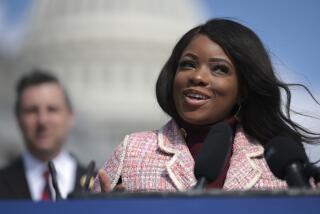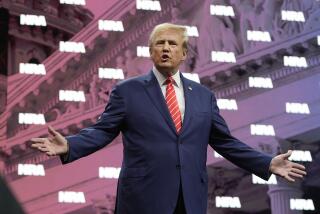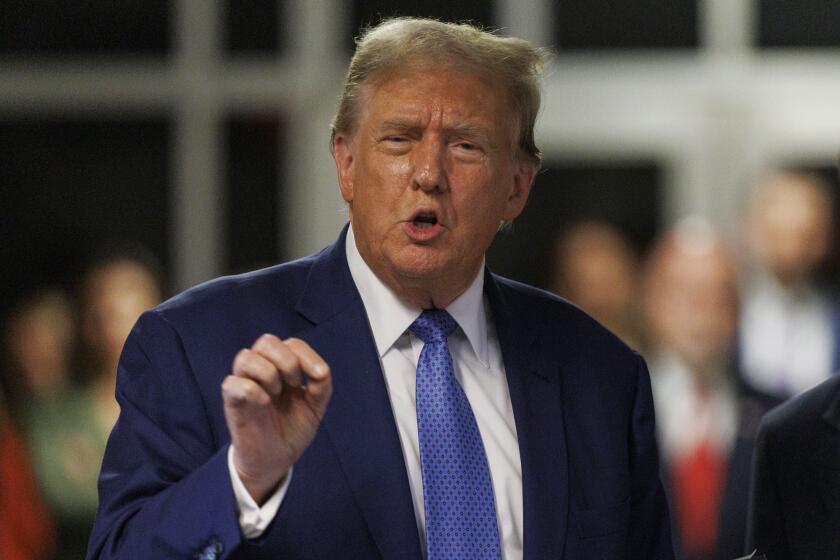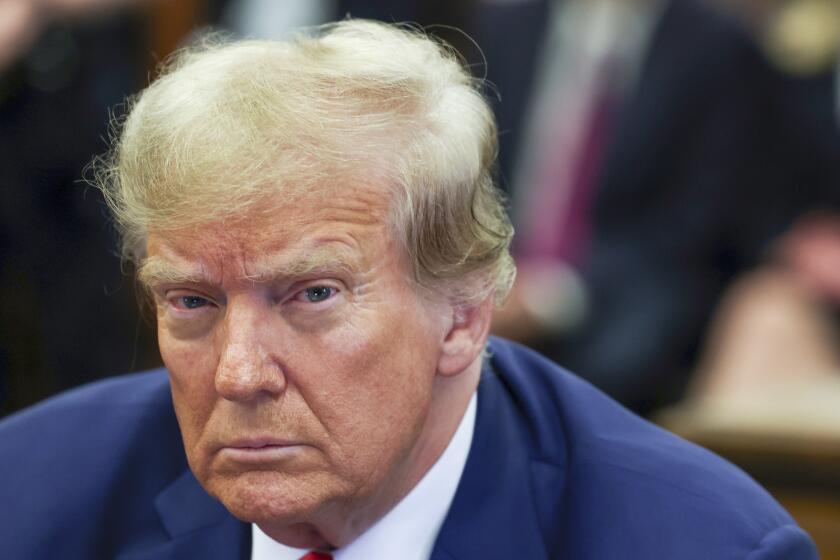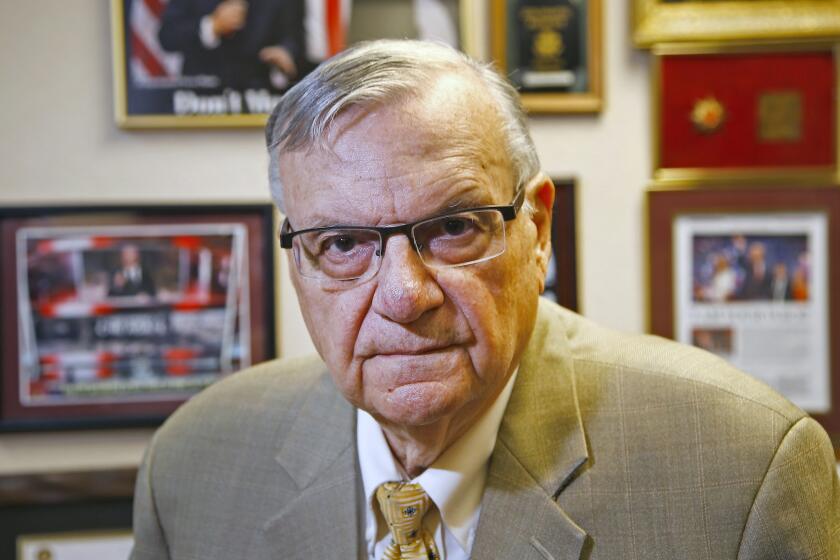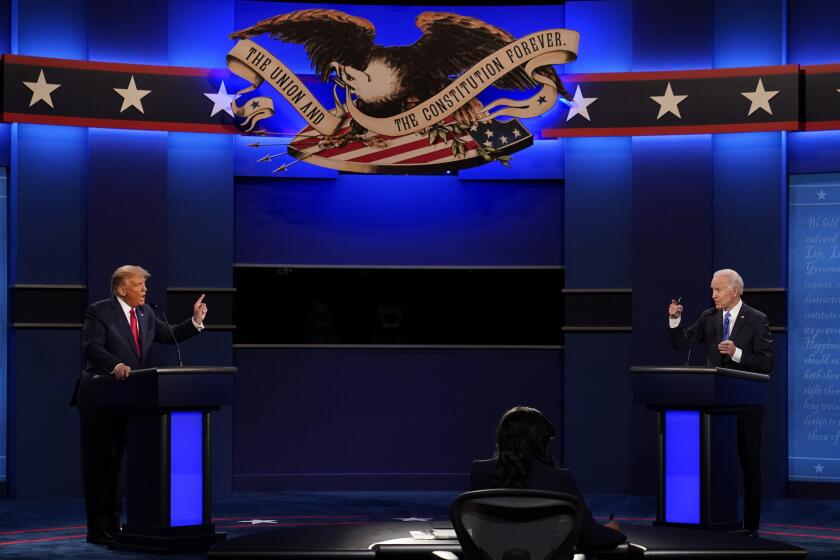Appellate Decision Went Too Far
At the very least, judges are expected to follow the law. They are to obey procedural rules and customs and base their decisions on precedents. Tuesday’s decision by the U.S. 9th Circuit Court of Appeals upholding the constitutionality of Proposition 209 is enormously troubling because it is so at odds with the law. Three very conservative judges obviously were determined to uphold the anti-affirmative action initiative and were not about to let the law, procedural or substantive, get in their way.
First, it was inappropriate for these judges to be the ones deciding the case. Each month, the court designates three of its judges to sit as the “motions panel.” As its title implies, the motions panel is there to hear the myriad different kinds of motions that might be made to a court. The motions panel is not supposed to rule on the merits of an appeal; that is left for the “merits panel.”
After U.S. District Judge Thelton Henderson issued a preliminary injunction against the implementation of Proposition 209 in November, a motion was made for a stay of the order until it was heard by a merits panel. The motions panel for that month consisted of three quite conservative judges: Diarmuid F. O’Scannlain, Edward Leavy and Andrew J. Kleinfeld. Instead of deciding the motion before them, the judges decided to transform themselves into the merits panel and rule on the constitutionality of Proposition 209. This is extremely unusual, if not unheard of. The judges, out of their apparent desire to uphold Proposition 209, ignored customary, virtually universal practice about the limited role of a motions panel.
Second, in upholding Proposition 209, these judges had to largely disregard several Supreme Court cases that were almost exactly on point. The plaintiffs’ claim was that Proposition 209 is unconstitutional because it precludes women and minorities from using the political process to gain laws remedying civil rights violations. In 1982, the Supreme Court declared unconstitutional an initiative enacted by that state’s voters mandating that all students attend their neighborhood schools. Although the initiative did not mention race, the court said that the clear purpose of the law was to preclude the political process from being used to adopt voluntary busing programs. The court said that impeding the political process in this way was discriminatory against minorities because it makes the “enactment of racially beneficial legislation difficult.”
Henderson relied heavily on the Seattle case as the basis for enjoining Proposition 209. Like the Washington initiative, Proposition 209 makes the enactment of racially beneficial legislation much more difficult.
The 9th Circuit’s argument that the Seattle case and others like it did not apply is highly questionable. The court said that “[i]mpediments to preferential treatment do not deny equal protection. It is one thing to say that individuals have equal protection rights against political obstructions to equal treatment; it is quite another to say that individuals have equal protection rights against political obstructions to preferential treatment.” But this completely misses the point of cases like Seattle. After Proposition 209, any group-- newspaper owners, doctors, law professors--can use the political process to gain protections or special programs, but not women or minorities. This is discrimination, and if the 9th Circuit judges wanted to reject this argument, they at least should have offered a clearer explanation of why the claim is flawed.
Finally and most strikingly, the 9th Circuit judges decided far more than the issue that was before them. At most, the sole question for them at this stage was whether Henderson made a clear error and abused his powers when he issued the preliminary injunction. Even if the court disagreed with Henderson, the most it seemed allowed to do was overturn the injunction and send the matter back for a trial.
But the 9th Circuit panel did much more than that: Their decision flatly declaring that Proposition 209 is constitutional effectively precluded any trial about its discriminatory effects. The judges said that they concluded “as a matter of law, [that] Proposition 209 does not violate the Constitution.” In other words, plaintiffs will have no chance for a trial to try and prove that Proposition 209 is impermissibly discriminatory. Even though the ultimate issue of the constitutionality of Proposition 209 was not before this court, they decided it anyway.
For decades, conservatives have railed against judicial activism. The 9th Circuit’s decision upholding Proposition 209 only can be understood as conservative judicial activism of the most aggressive sort.
In all likelihood, this is not the last judicial word on the constitutionality of Proposition 209. The constitutional issues are far more difficult than the 9th Circuit decision admitted and ultimately they will need to be resolved by the Supreme Court.
More to Read
Get the L.A. Times Politics newsletter
Deeply reported insights into legislation, politics and policy from Sacramento, Washington and beyond. In your inbox three times per week.
You may occasionally receive promotional content from the Los Angeles Times.
